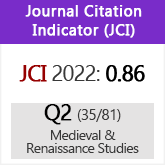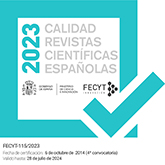La aritmética de Boecio y la ritmomaquia: teoría y práctica del juego medieval de los sabios
DOI:
https://doi.org/10.3989/aem.2004.v34.i1.187Keywords:
Boetius, Aritmethic, Rithmomachia, Mathematical gameAbstract
This research analyses the theoretical bases of rithmomachia, a complex numerical competition originally practiced in medieval Central European monastic schools. The initial objective of the game was the theoretical and practical acquisition of arithmetic, though this aim was surpassed with the presentation of a reduced model of the mathematical harmony which governs the universe. The game was also played by the nobility of the period who used it as a source of intellectual training. This study proposes an interpretation of the generation of the numbers that intervene in this game; the interpretation is based on the use of the Latin terminology of Boetius' text and offers an explanation that is wholly compatible with the contents and objectives of medieval mathematics. Also discussed are the variations in the game's rules and the possible reasons for the game's decline and disappearance.
Downloads
Download data is not yet available.
Downloads
Published
2004-06-30
How to Cite
Núñez Espallargas, J. M. (2004). La aritmética de Boecio y la ritmomaquia: teoría y práctica del juego medieval de los sabios. Anuario De Estudios Medievales, 34(1), 279–306. https://doi.org/10.3989/aem.2004.v34.i1.187
Issue
Section
Miscelaneous Studies
License
Copyright (c) 2004 Consejo Superior de Investigaciones Científicas (CSIC)

This work is licensed under a Creative Commons Attribution 4.0 International License.
© CSIC. Manuscripts published in both the printed and online versions of this Journal are the property of Consejo Superior de Investigaciones Científicas, and quoting this source is a requirement for any partial or full reproduction.All contents of this electronic edition, except where otherwise noted, are distributed under a “Creative Commons Attribution 4.0 International” (CC BY 4.0) License. You may read here the basic information and the legal text of the license. The indication of the CC BY 4.0 License must be expressly stated in this way when necessary.
Self-archiving in repositories, personal webpages or similar, of any version other than the published by the Editor, is not allowed.














